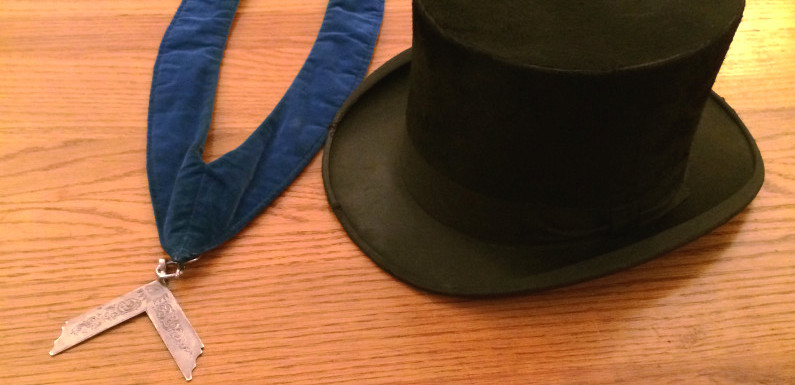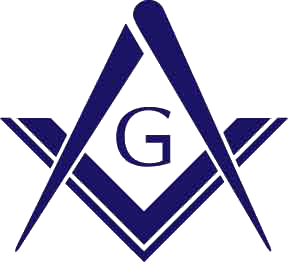by RW Stewart Pollard, Masonic Service Association
All-too-frequently we hear of Masonic leaders being on an ego trip. Or, we hear that they are stumbling over their own egos. Then there are such remarks as, He turned into a monster after he went into office, or whatever happened to meeting on the level?
Those comments are not all without some foundation. There are, and have been, Masonic leaders who are carried away with their own importance. Yes, and there are some who let the title go to their heads, and who forget from whence they came.
Ego is a strange thing. We all should have a certain amount of it to demonstrate our pride in our abilities, in our accomplishments, and in our self-respect. It is only when we get to the point that we tend to believe that were better, smarter or more important than the next fellow that ego gets in our way.
Masonry has never been considered a democratic society. The Master of a lodge is not only its leader, but more importantly he is its greatest servant. As such, he has an obligation to serve his lodge and his brethren, not for his own glory and honor, but for the good of the lodge. He must be prudent in all of his words and actions, and if necessary, subjugate his own desires to those of the lodge.
Masters, though, are not the only ones whose egos have a tendency to hurt the Craft. Longfellow said, Into each life some rain must fall…. The phrase might well be reworded to In almost every lodge there is a nitpicker. Or so it seems. There are some of our brethren who are never satisfied. They look for an excuse to: criticize; to complain; to jaw, to sound off; to grouch;–to nitpick. Their ego, as shown by their need to be heard, is frequently a thorn in the side of the Master and officers. They have a tendency to ruffle feathers.
The Masonic Service Association recently received a letter from an irate Past Grand Master who had read in a Masonic publication a paper bearing the by-line of a Grand Lodge Officer in a sister jurisdiction. It was a good, thought provoking well-written article which caused the Past Grand Master to do added research on the topic.
What prompted his ire and disgust was that in his research he came across a Short Talk Bulletin of twenty-five years ago which sounded very familiar. When he compared it with the recent publication, he found that it was word-for-word, sentence-by-sentence and paragraph-for-paragraph, identical to the Short Talk Bulletin, yet the author had not had the courtesy to give credit where credit was due. His ego had permitted him to let readers think it was his words and his thoughts.
The story has been told of a Grand Master who was so puffed up with his own importance that his officers jokingly suggested that his theme song should be, How Great Thou Art. Most of us have seen Masters of lodges who think that the title Worshipful was created just for their benefit.
And then there are PAST officers whose egos wont let them relinquish the gavel. Two people with their hands on the steering wheel at the same time can make it an unpleasant trip for the other passengers. If the Master is not in control of the lodge, its an unpleasant experience for the brethren. The old expression, too many cooks spoil the broth, is equally applicable to the management of a lodge or a grand lodge.
Yes! An overzealous ego can and does damage our Craft. It is a by-product of poor leadership traits, which we need to identify early in our progressive lines. In many cases, ego can be temp-ted by whispering words of wise counsel in the ear of an erring brother. In a worse-case scenario, when it is obvious that the over-blown ego cannot be controlled, it may be necessary to pass the brother over at the next election.
In The Freemasons Monitor, written by Thomas Smith Webb in 1799, he observes: “that all, who accept offices and exercise authority, should be properly qualified to discharge the task assigned them, with honor to themselves, and credit to their sundry stations.” The same is just as true almost two hundred years later.
When elected to office, the brothers are confident that the one elected has the qualifications and ability to lead and has the best interests of the lodge at heart. He is expected to conform to the principle of the order, by steadily persevering in the practice of very commendable virtue.
An often-quoted verse, titled The Indispensable Man, is frequently used to illustrate the unnecessary value of egotism. It bears repeating.
Sometime when you’re feeling important,
Sometime when your egos in bloom,
Sometime when you take it for granted You’re the best qualified in the room;Sometime when you feel that your going
Would leave an unfillable hole
Just follow these simple instructions
And see how they humble your soul.Take a bucket and fill it with water
Put your hand in it up to the wrist,
Pull it out, and the hole thats remaining Is a measure of how you’ll be missed.You can splash all you want when you enter,
You may stir up the water galore:
But stop, and you find that in no time
It looks quite the same as before.The moral in this quaint example
Is to do just the best that you can;
Be proud of yourself, but remember
There’s no indispensable man.
A noted management psychologist, Dr. James G. Carr of Charlotte, North Carolina, in an article in PACE magazine, summed it up this way:
Power-hungry people do occupy high stations in life at times and some abuse their power; but to condemn all leaders on those grounds-including those whose primary motive was to serve or those who simply filled a vacuum left by the less competent or less motivated is ridiculous.
Even the selfish did not attain those positions by selfishness alone. With predictable exceptions, authority usually has something to do with accomplishment and contribution; and, in the final analysis, we may have to concede that those who get the most—whether selfishly motivated or not—are sometimes those who have given the most.
The Master who completes his year in the East with satisfaction can quote those famous American philosophers, Bartles and Jaymes, by saying to the brethren, Thank you for your support.


